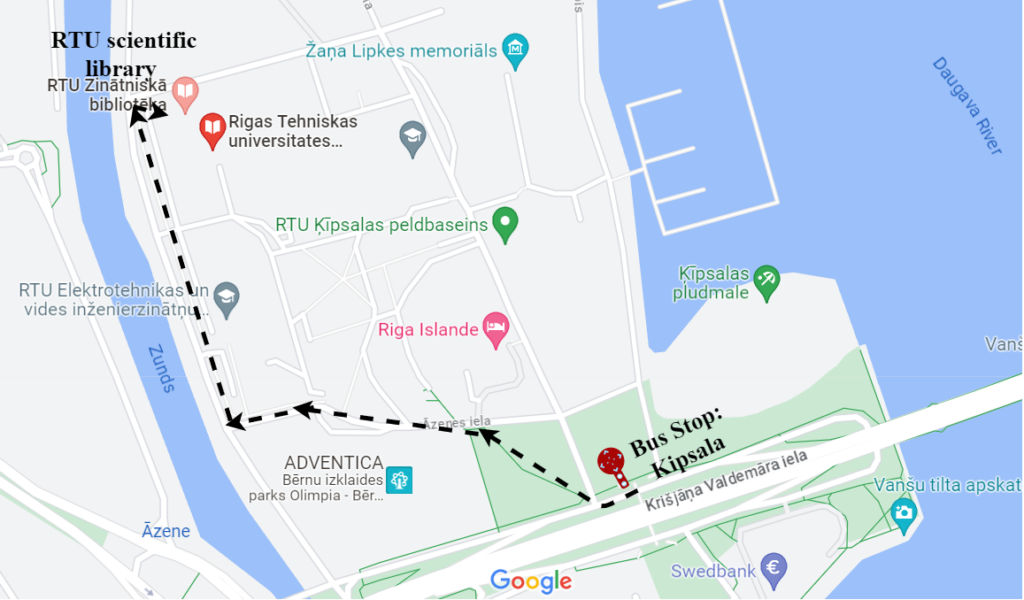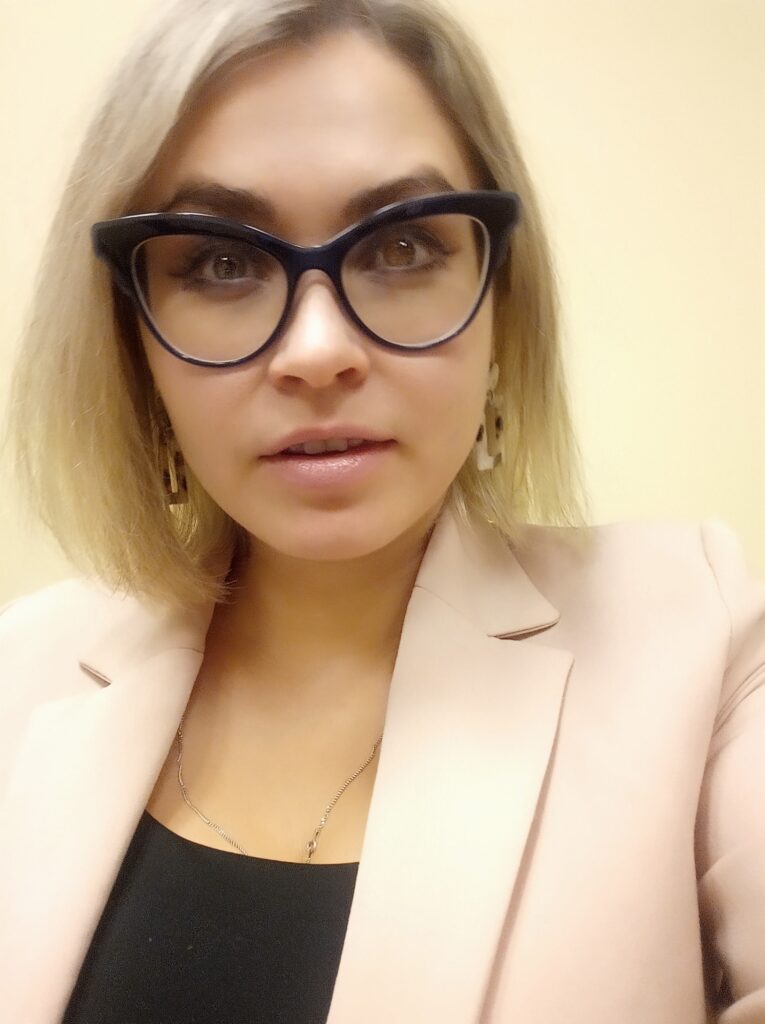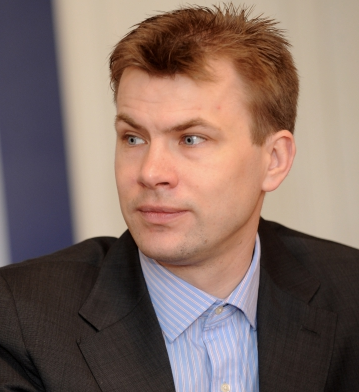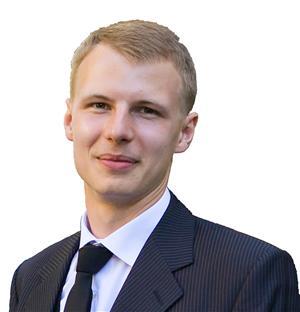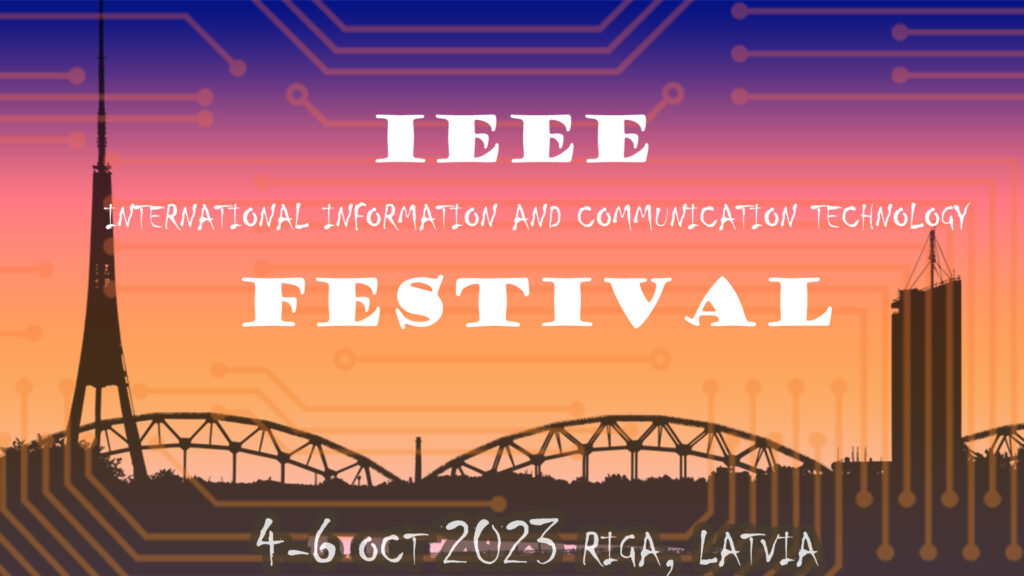
IEEE International Information and Communication Technology Festival (IEEE ICTFest) is a three-day-long science-promoting event consolidating:
- IEEE Day celebration,
- Science Week of Riga Technical University and special PhD students poster session,
- International Workshop on Microwave Theory and Techniques in Wireless Communications (MTTW’23),
- International Scientific Conference on Information Technology and Management Science (ITMS’23),
- IEEE Lithuania and Latvia Sections Workshop on Microwave Devices and Systems,
- Invited Lectures from Leading ICT European Scientists,
- Discussion with Industry representatives on “Skills and perspectives of Post-COVID Young Professionals in the field of Information and Communication Technology”.
The celebration will be held on October 4–6.
IEEE Day Celebration
IEEE is the world’s largest technical professional organization dedicated to advancing technology for the benefit of humanity (www.ieee.org). IEEE’s core purpose is to foster technological innovation and excellence for the benefit of humanity. IEEE will be essential to the global technical community and technical professionals everywhere and be universally recognized for the contributions of technology and technical professionals to improving global conditions. IEEE Day commemorates the anniversary of the first time when IEEE members gathered to share their technical ideas, which took place in 1884. Worldwide celebrations demonstrate the ways thousands of IEEE members in local communities join together to collaborate on ideas that leverage technology for a better tomorrow. While the world benefits from what’s new, IEEE focuses on what’s next.
International Scientific Conference on Information Technology and Management Science ITMS
International Scientific Conference on Information Technology and Management Science of Riga Technical University ITMS 2023 (http://itms.rtu.lv) aims at bringing together young scientists and researchers from information technologies and management sciences in an effort to promote and encourage cross-fertilization of ideas and tools related to but not limited to the general topics of the conference, such as Information Technology, Information Systems, Computer Technologies, Data Processing, System Security and Control, Modelling and Simulation, Automatic Control, E-Commerce and E-Governance, Cloud Computing, Human-Computer Interaction, Cyber-Physical Systems, Intelligent Systems, Internet of Everything.
International Workshop on Microwave Theory and Techniques in Wireless Communication MTTW
The International Workshop on Microwave Theory and Techniques in Wireless Communication MTTW’23 (http://mttw.rtu.lv) is another continuation of a long tradition of holding communication workshops and conferences at the Riga Technical University. The Workshop has traditionally been a place of scientific acquaintance and fertile soil for many scientific, academic, and industrial projects nurtured in the fields of the Workshop: Communication Systems, Digital Signal Processing and Artificial Intelligence, Sensor Networks and Internet of Things, Software-Defined Radio and Cognitive Radio, Networking, Quantum Communications, Antenna Technologies, Microwave Electronics and Photonics, MM-Wave to THz Technology and Applications, Wireless Power Transfer and Energy Harvesting, Electromagnetic Field Theory and Numerical Techniques, 3D and Novel Engineered Materials.
Science Week of Riga Technical University
The 64th International Scientific Conference of Riga Technical University unites academic and scientific audience and students to disseminate new research results in the fields of Scientific Problems of Engineering Economics of Construction and Real Estate Management, Regional and Territorial Development; Computer Science; Power and Electrical Engineering; Materials Science and Applied Chemistry; Humanities and Social Sciences; Architecture and Urban Planning; Construction Science; Electronics; Engineering, Mechanics and Mechanical Engineering; Transport; Bioenergy Technologies and Biotechnologies; Biomedical Engineering and Physics, Powder Materials; History of Engineering Sciences and Institutions of Higher Education; Telecommunications; E-study Technologies; Scientific Problems of Engineering Economics of Construction and Real Estate Management, Regional and Territorial Development; Mechanical Engineering Technology and Heat Engineering. Science Week of Riga Technical University on ICT Fest will be represented by the Institute of Radioelectronics with a poster session on Electronics. The latest scientists’ and PhD students’ research results will be shown and discussed.
Discussion with Industry representatives on “Skills and perspectives of Post-COVID Young Professionals in the field of Information and Communication Technology”.
A discussion of the Industry representatives on the skills of the next generation of young professionals in information and communication technology (ICT) field will encourage all interested to participate in whole festival program. Leading industry experts from companies and universities will present, sharing perspectives and challenges in ICT education and professional development. Together we will solve how to prepare young specialists in this rapidly changing digital environment. Representatives of Accenture, Mikrotik, AirBaltic, Sadales tīkls, Lightspace Technologies companies, and the vice-rector of RTU studies will participate in the discussion.
IEEE ICTfest program
- IEEE ICTfest & ITMS’2023 program available here.
- IEEE ICTfest & MTTW’2023 program available here.
All sessions of October 4th and plenary sessions of October 5th and 6th will be transmitted in Zoom: https://rtucloud1.zoom.us/j/91523186452?pwd=WG1GT2ZTVWozT3JMWTRhZTRGSkE0UT09
Meeting ID: 915 2318 6452 Passcode: 686442
ITMS sessions of October 5th and 6th will be transmitted in Zoom separately (see links in program).
Invited Lecturers

Keynote speaker Oscar Quevedo-Teruel
A fast ray-tracing code for the simulation of lens antennas
Bio: Oscar Quevedo-Teruel is an IEEE Fellow. He received his Telecommunication Engineering and Ph.D. Degrees from Carlos III University of Madrid, Spain in 2005 and 2010. From 2010-2011, he joined the Department of Theoretical Physics of Condensed Matter at Universidad
Autonoma de Madrid as a research fellow and went on to continue his postdoctoral research at Queen Mary University of London from 2011-2013.
In 2014, he joined the Division for Electromagnetic Engineering in the School of Electrical Engineering and Computer Science at KTH Royal Institute of Technology in Stockholm, Sweden where he is a Full Professor, the Responsible for the Antenna Laboratory and Director of the Master Programme in Electromagnetics Fusion and Space Engineering. He was an Associate Editor of the IEEE Transactions on Antennas and Propagation since 2018-2022 and Track Editor since 2022. He is the founder and editor-in-chief of the EurAAP journal Reviews of Electromagnetics since 2020. He was the EurAAP delegate for Sweden, Norway, and Iceland from 2018-2020, and he has been a member of the EurAAP Board of Directors since January 2021. Since January 2022, he is the vice-chair of EurAAP. He was a distinguished lecturer of the IEEE Antennas and Propagation Society for the period of 2019-2022, and Chair of the IEEE Antennas and Propagation Society’s Educational Initiatives Programme since 2020.
He has made scientific contributions to higher symmetries, transformation optics, lens antennas, metasurfaces, leaky wave antennas and high impedance surfaces. He is the co-author of more than 130 papers in international journals and more than 200 at international conferences.
Abstract: In this talk, Prof. Quevedo-Teruel will explain the operation of a ray-tracing code that can be used to calculate in a few seconds, and extremely accurately, the radiation pattern, efficiency and gain of lens antennas. Lenses are an excellent candidate for new applications in the millimeter frequency regime, especially for antennas with low-scan losses. For example, they are being considered for antenna solutions in 5G/6G, satellite communications in Low-Earth Orbit constellations and automotive radars. However, their simulation and optimization are time-consuming due to their large dimensions in terms of wavelength. In this presentation, Prof. Quevedo-Teruel will explain the theory of ray-tracing, its features, and he will demonstrate its operation with some practical examples.
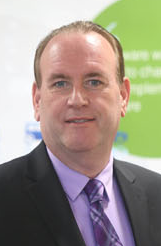
Mike Hinchey
Is There Anything that Isn’t Software?
Bio: Professor Mike Hinchey is Professor of Software Engineering at University of Limerick, Ireland, where he was previously Head of Department of Computer Science and Information Systems and Director of Lero-the Science Foundation Ireland Research Centre for Software, a national research centre headquartered at University of Limerick. He is Past President of IFIP, the International Federation for Information Processing (www.ifip.org) and Past Chair of the IEEE UK & Ireland Section. He is Director-elect of IEEE Region 8 (Europe, Middle East, Africa) and serves on IEEE Computer Society Board of Governors. Prior to joining University of Limerick, Professor Hinchey was the Director of the NASA Software Engineering Laboratory. In 2009, he was awarded NASA’s Kerley Award as Innovator of the Year and is one of only 36 people recognized in the NASA Inventors Hall of Fame. Professor Hinchey holds a B.Sc. in Computer Systems from University of Limerick, an M.Sc. in Computation (Mathematics) from University of Oxford and a PhD in Computer Science from University of Cambridge. Professor Hinchey is a Chartered Engineer, Chartered Engineering Professional, Chartered Mathematician and Chartered Information Technology Professional, as well as a Fellow of the IET, British Computer Society, Engineers Ireland, and Irish Computer Society, of which he is also Past President. He is Editor-in-Chief of Innovations in Systems and Software Engineering: a NASA Journal and Journal of the Brazilian Computer Society. In 2018, he became an Honorary Fellow of the Computer Society of India and was the SEARCC Global ICT Professional of the Year 2018. He is a candidate for IEEE Computer Society President-elect (please see mikehinchey.info ).
Abstract: In this rapidly changing world, evolving technologies such as Artificial Intelligence, Robotics, Machine Learning, Cloud Computing, Big Data, the Internet of Things, and Mobile Computing are combining to disrupt traditional models and radically change how we live, work, and interact. More importantly, these technologies change the way we live and do business: the world’s largest bookstore is a Cloud Computing provider, and the largest fleet of cars in the world is operated by an app provider. Areas such as healthcare have been transformed dramatically, with better analysis, imaging, detection, diagnosis, treatment, robot-assisted surgery, and even significant advances in sharing health records. We eagerly await the day when cars, buses, trucks, and railways are self-driven, and Industry 4.0 is already upon us, and of course we claim the use of AI in just about everything. All of these advances are entirely dependent on software. We ask the question: is there anything that isn’t software?
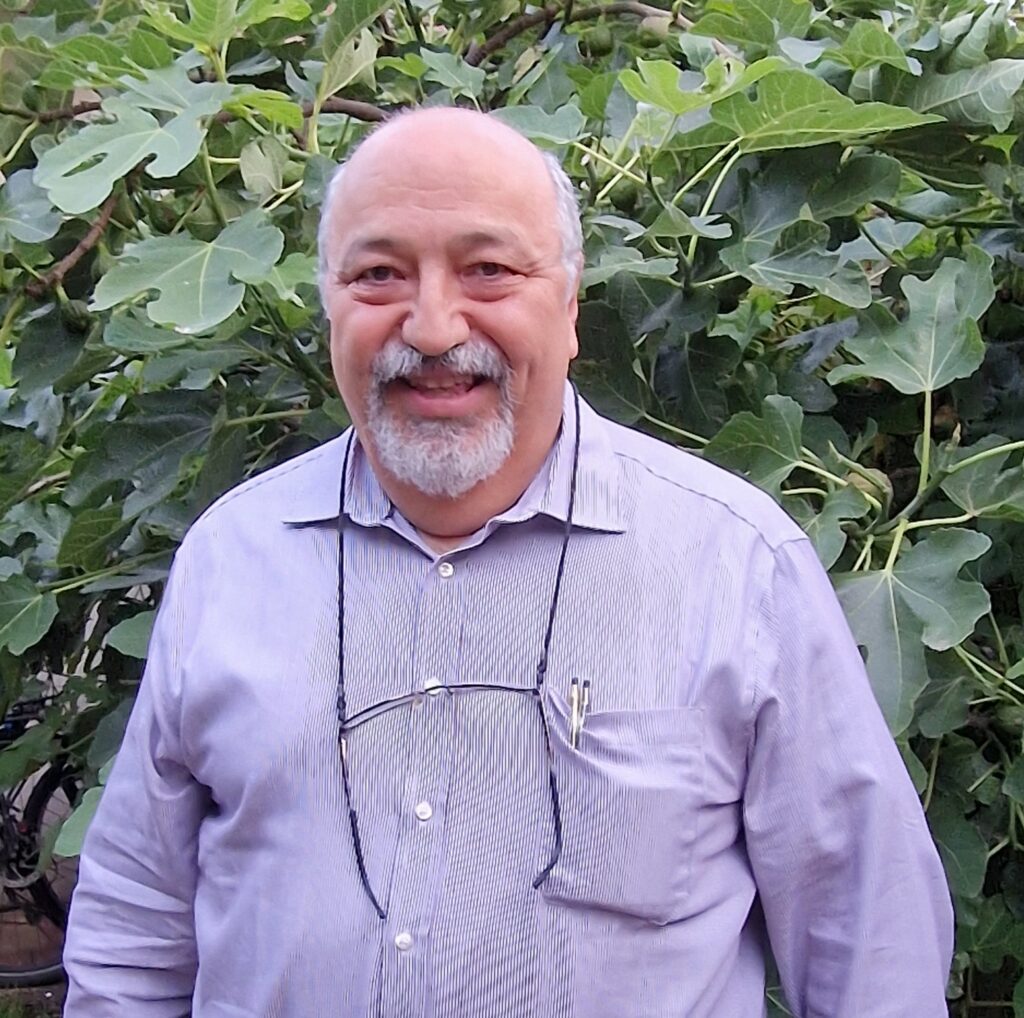
Izzet Kale
Balanced Model Truncation and its Practical Real-World Applications
Bio: Kale is currently Professor Emeritus of Applied DSP and VLSI Systems, and Hon. Director of the Applied DSP and VLSI Research Group (ADVRG) at the University of Westminster which he founded in the late eighties. He is also Chair of the IEEE UK and Ireland Section, the largest IEEE Section in the World.
With his group, he has undertaken numerous next generation product oriented applied research and development projects/contracts for European, US and Japanese corporations, which have led to several consumer electronic ICs, systems and products for the telecommunications, aerospace and biomedical sectors.
Kale, is a nationally and internationally known and respected authority with nearly 40 years of experience in the design and implementation of reduced complexity low-ultra-low-power systems for a variety of applications including but not limited to sensors and sensor networks, communications systems, satellite payloads, embedded systems, biomedical instrumentation and diagnostic systems and real-time DSP Systems, with a significant effort currently in biomedical sensors and instrumentation for rapid diagnosis applications.
He has also spearheaded ground-breaking work in DSP as well as mixed-signal VLSI systems and their IC implementations, mainly in collaboration with industry for their next generation low-power systems and IC products.
He has led many Industry and Research Council sponsored, National, European and International Applied R&D projects as the PI with a very significant project and engineering team management experience, targeting next generation product development and has a 100% track record for timely delivery of outputs to aggressive commercially set deadlines to meet time to market product development cycles for Industry, predominantly in the Biomedical, Sensors and Interfaces, Communications and Satellite sectors.
His research and teaching interests include; digital and analogue signal processing, silicon circuit and system design, digital filter design and implementation, embedded ultra-low-power intelligent systems for IoT sensor networks for biomedical applications, ultra-low-power processing and processor structures for secure communications and transactions for NFC applications, novel ultra-low-power signal processing structures (for use in stringent filtering applications in biomedical such as ECG/EEG applications); real-time solutions for receiver implementation based on data converter and high-speed DSP architectures; high speed, wide bandwidth,high resolution data converters; computationally efficient digital receiver architectures for software defined DAB and GPS, onboard satellite power aware and low-power processor and processing engines for commercial satellites, notably through European Space Agency sponsorship in collaboration with Airbus Defence and Space (formerly EADS Astrium). A notable project here is the European Union sponsored AF3 (Automated Forest Fire Fighting) Project where Kale’s Team developed novel deploy and forget environment monitoring IoT connected embedded intelligent, power aware, self-powered sensor nodes and networks with onboard computational intelligence and self-configuration and Networking capabilities deploying elements of the ADVRG’s Configurable Ultra-Low-Power (CULP) processor IP.
Kale authored and co-authored, ~400 technical papers, 3 books, 11 patents, supervised and co-supervised 39 PhD students to successful completion, examined another 70+ Nationally and Internationally. He has also organised and Chaired several Conferences and Workshops and Special Sessions as General Chair and Co-Chair, served on program Committees and continues to do so.
He is currently working on the efficient implementation of low-power DSP algorithms, circuits and systems, architectures and processors and Sigma-Delta modulator structures for deployment in biomedical sensors and instrumentation as well as complexity and power reduced Satellite payload Systems.
Abstract: This talk will look into the theoretical foundations of Balanced Model Truncation (BMT) which has its origins in the Control Engineering literature, and cover the practical implementation steps, with a view to deploying it in real-world DSP applications.
The speaker will provide a number of examples from the use of the BMT technique, in actual product design and development, from project undertaken for various sectors of industry, where the BMT technique has made a very substantial difference in system order reduction as well as complexity reduction, which resulted in substantial footprint and power reduction in the actual circuit level implementations.
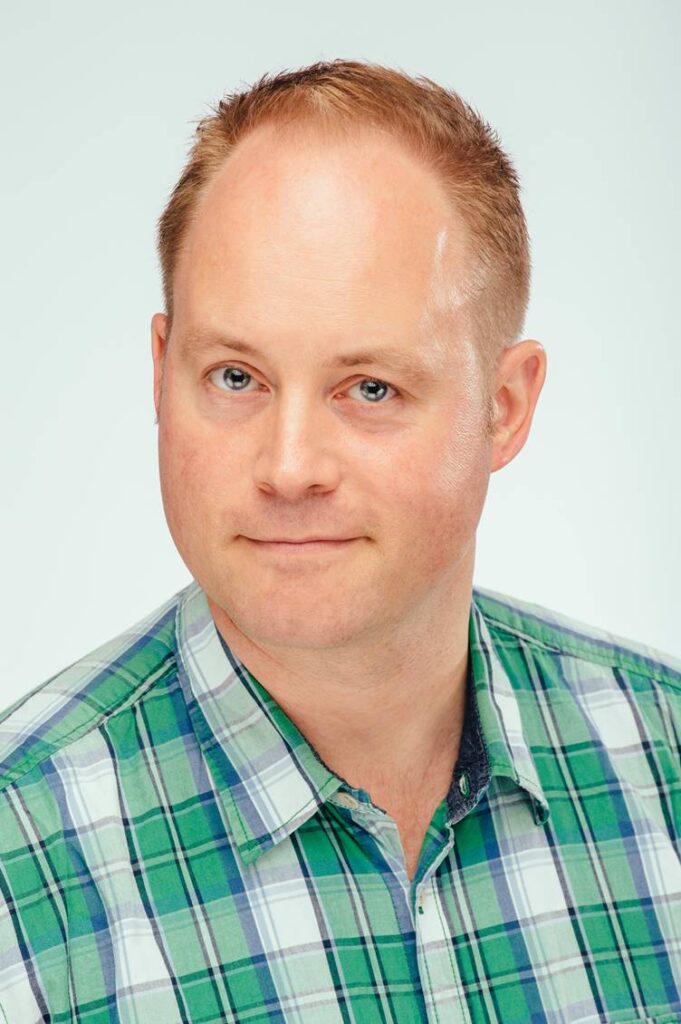
Alex Norta
Global Development Trends of Blockchain Technology
Bio: Alex Norta is a scientist and entrepreneur currently focusing on his blockchain startups while still working on a fundamental Web3 research project with Tallinn University. Previously, Alex was an associate professor at the Department of Software Science at TalTech University until March 2022. He has also worked as a researcher at the University of Oulu’s Secure Programming Group and as a postdoctoral researcher at the University of Helsinki.
Dr. Norta received his MSc degree in 2001 from the Johannes Kepler University of Linz, Austria, and his PhD degree in 2007 from Eindhoven University of Technology, Netherlands. His PhD research on developing the eSourcing concept for dynamic inter-organizational business process collaboration was partly financed by the EU IST project CrossWork. His research interests include business process collaboration, blockchains, smart contracts, oracles, multi-agent systems, e-learning, e-governance, service-oriented computing, software architectures, ontologies, social web, and generative AI. Alex has published over 116 research papers and from the period of 2018-2022, 10 of his PhD students successfully defended their doctoral theses. Alex also brings extensive research experience in IT and emerging technologies such as blockchain to this keynote presentation on global blockchain development trends. He has worked in the past with many blockchain startup companies in their fundraising efforts.
Abstract: Blockchain technology has evolved rapidly over the past decade, from the launch of Bitcoin in 2009 to the emergence of programmable blockchains like Ethereum. This keynote speech will provide an overview of the global development trends in blockchain technology. It will cover the evolution from Blockchain 1.0 focused on cryptocurrencies to Blockchain 2.0 enabling smart contracts and decentralized applications. Architectures like directed acyclic graphs (DAGs) have also emerged to address scalability and other limitations.
The speech will highlight major public blockchain infrastructure projects and applications like decentralized finance (DeFi), non-fungible tokens (NFTs), decentralized metaverses, and blockchain games. It will also discuss enterprise blockchain adoption with use cases, Blockchain-as-a-Service offerings, and alliances like the Enterprise Ethereum Alliance. Government initiatives around blockchain will be covered, including the European Blockchain Services Infrastructure (EBSI) and central bank digital currency (CBDC) projects.
Organizers
Chair:
Dr.sc.ing Anna Litvinenko
Steering Committee:
Dr.sc.ing Janis Grabis
Steering Commitee:
Dr.sc.ing Dmitrijs Pikulins
Steering Commitee:
Dr.sc.ing Andrejs Romanovs
Sponsors

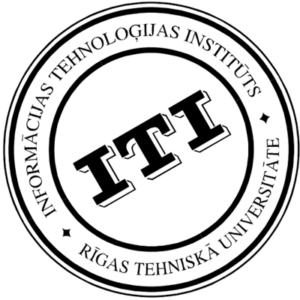


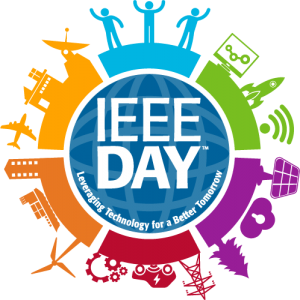

Venue
The Workshop will be held on the campus of Riga Technical University— at the Scientific Library of RTU, Riga. Address: Paula Valdena street 5, LV1048.
